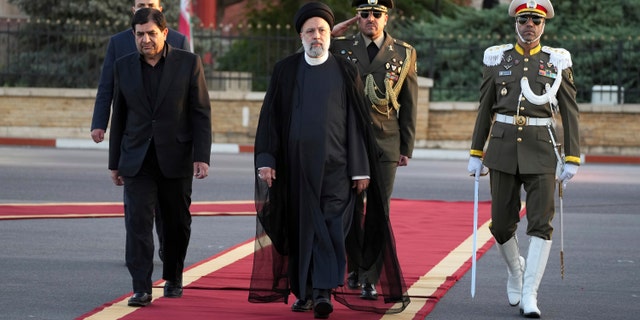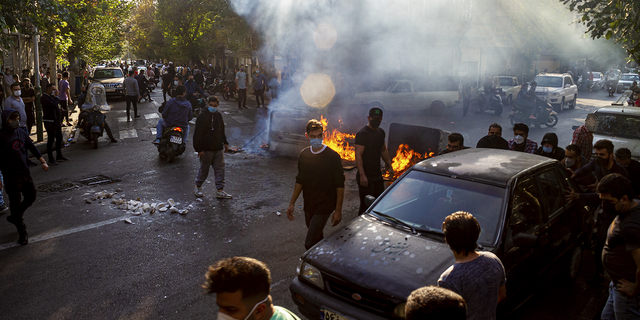The International Atomic Energy Agency (IAEA), which is the United Nations’ nuclear watchdog, has voted to order Iran to cooperate with the agency’s investigation into uranium traces found at three undeclared sites as a nuclear deal with the country appears to be less and less certain.
The resolution drafted by the United States, Britain, France and Germany says the board “decides it is essential and urgent” that Iran explain the origin of the uranium particles and more generally give the IAEA all the answers it requires.
“Iran must now provide the necessary cooperation, no more empty promises,” the United States said in its statement to the board shortly before the resolution was adopted with 26 votes in favor, five abstentions and two countries absent, according to diplomats in the meeting. Only Russia and China voted against.
The resolution is not the first time the board has passed action against Iran, but the current resolution contains stronger wording that hints at possible diplomatic escalation down the line.
REVOLUTIONARY IRAN KISS PHOTO GOES VIRAL AS BEAUTIFUL ACT OF DEFIANCE AGAINST REGIME
FILE – Iranian President Ebrahim Raisi
(Iranian Presidency Office via AP)
One possible action the board could take in the future is a referral to the U.N. Security Council (UNSC), said Behnam Ben Taleblu, senior fellow at the Foundation for Defense of Democracies, to Fox News Digital.
“Firmer language from the IAEA board about Iranian failures to explain traces of man-made uranium particles at past nuclear sites can serve as a potential glide path for UNSC referral, something Tehran has long sought to avoid through half measures and empty promises of cooperation,” Taleblu said.
WATCH: IRAN SECURITY FORCES TARGET YOUTH PROTESTERS WITH INCREASINGLY VIOLENT CRACKDOWN

Iranian President Ebrahim Raisi, center, reviews an honor guard during his official departure ceremony, Sept. 19, 2022, as he leaves Tehran’s Mehrabad International Airport to attend the annual U.N. General Assembly meeting.
Taleblu explained that “censuring Iran over these shortcomings has to be the price floor” rather than a price ceiling of a new “pressure-based approach to countering Tehran’s nuclear infractions.”
“If transparency and cooperation are not forthcoming, then for the sake of the integrity of the global nonproliferation regime, Tehran must face consequences,” Taleblu added. “This includes exercising the ‘snapback’ option baked into the JCPOA (Joint Comprehensive Plan of Action).”
The move by the IAEA comes as talks with a nuclear deal have stalled and Robert Malley, U.S. envoy for Iran affairs, said last month that it will not “waste time” on trying to revive talks with Iran in light of Tehran’s brutal crackdown on antigovernment protesters and its support of Russia in its war against Ukraine.
IRAN MAY USE MASS EXECUTIONS TO QUELL ANTI-HIJAB PROTESTS ACROSS COUNTRY, HUMAN RIGHTS GROUP WARNS

Iranians in Tehran, Oct. 27, 2022, protest the recent death of 22-year-old Mahsa Amini following her arrest by the country’s morality police.
(AP/Middle East Images, File)
Over the summer, Iranian officials rejected an EU proposal and made more demands in late August and early September. Since that time, anti-government protests have broken out in Iran in response to the police custody death of 22-year-old Mahsa Amini, who had been detained by Iran’s morality police in September for not properly covering her hair with the Islamic headscarf, known as the hijab, which is mandatory for Iranian women.
Despite O’Malley saying earlier this week that the United States is continuing its strategy of “sanctions and pressure,” an Iranian official said this week there is currently an “uninterrupted exchange of messages” between the two countries in terms of reviving the 2015 deal that was scrapped by former President Donald Trump, Anadolu Agency reported this week.
Lisa Daftari, an expert on Iranian relations and editor-in-chief of the Foreign Desk, told Fox News Digital that the recent IAEA development “calls into question” the Biden administration’s approach to Iran and provides evidence that any nuclear deal would be a deal with a partner who has not shown reason to be trusted.
“To date, the Biden administration has been pressured to put the deal on hold both because of the demands of the regime but more so because of the young Iranian protesters’ movement, which has been successful in gaining global attention,” Daftari said. “A development like this once again underscores the importance of supporting the movement in Iran, which seeks to remove a government that cannot be trusted to lead its people or obtain nuclear weapons.”
Taleblu told Fox News Digital that regardless of any resolution issued against Iran, the country’s “nuclear advances and diplomatic intransigence are increasingly what is pouring cold water on the prospect of nuclear diplomacy with the Islamic Republic.”
“After all, Western diplomats must be wondering, what is the point of such diplomacy with a regime that slaughters protesters, proliferates arms, underwrites wars of imperial aggression and continues to shun nuclear transparency?” he said.
CLICK HERE TO GET THE FOX NEWS APP
The White House did not immediately respond to a request for comment from Fox News Digital.
Reuters contributed to this report.